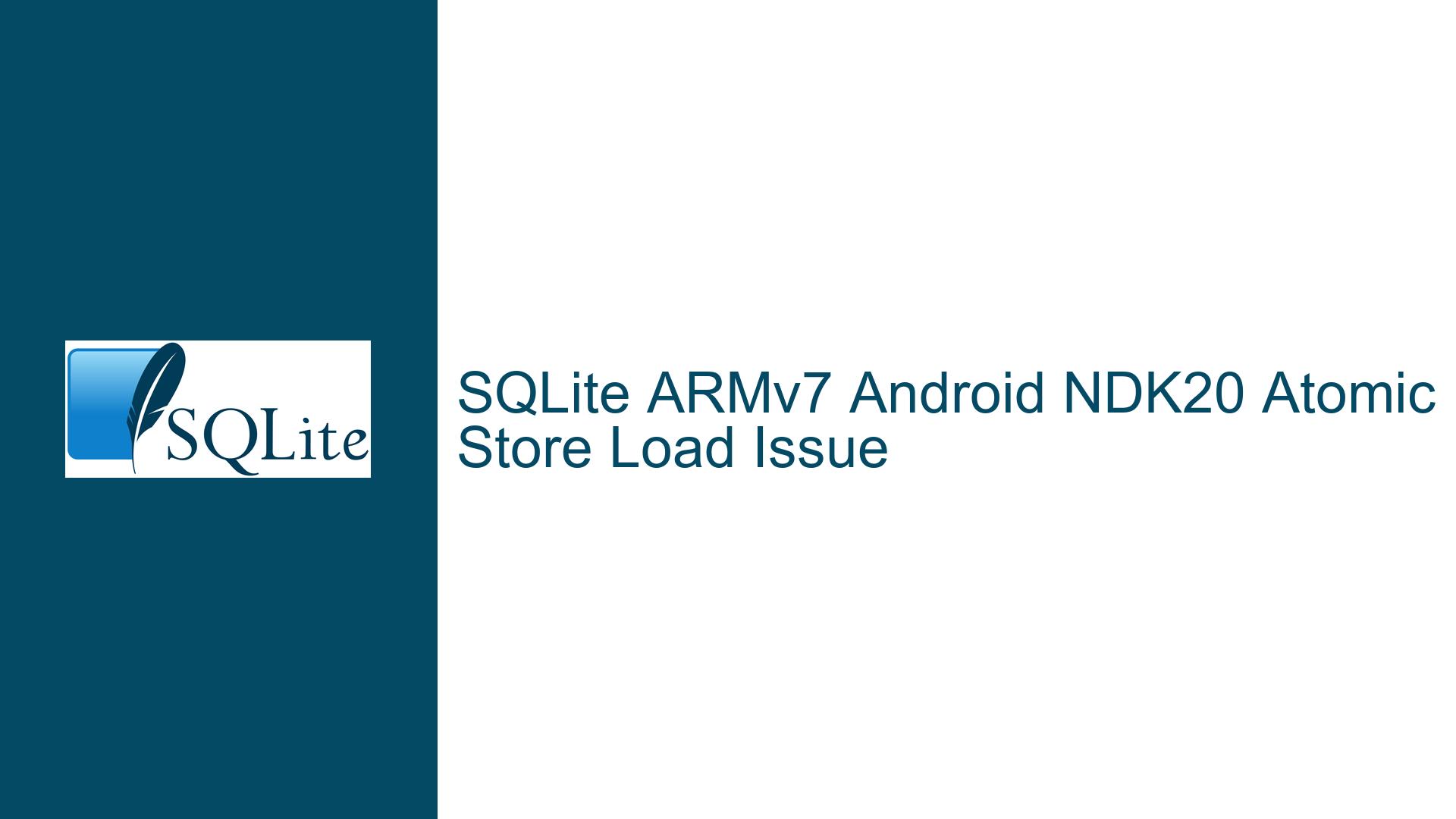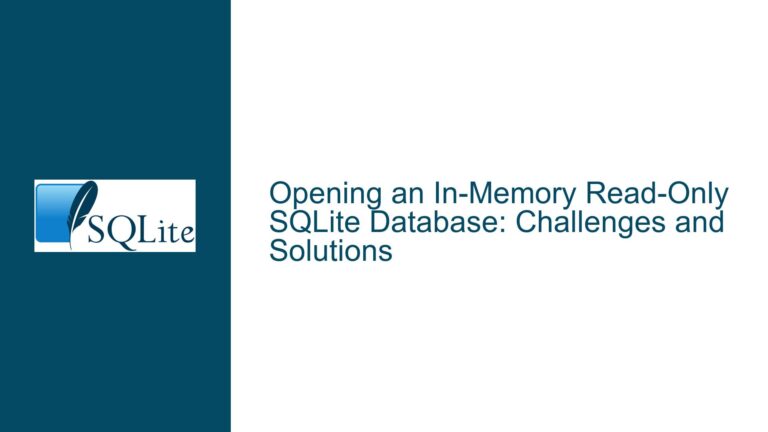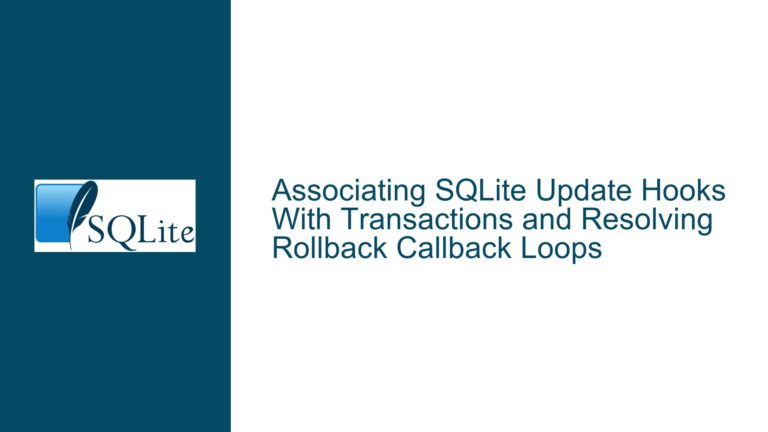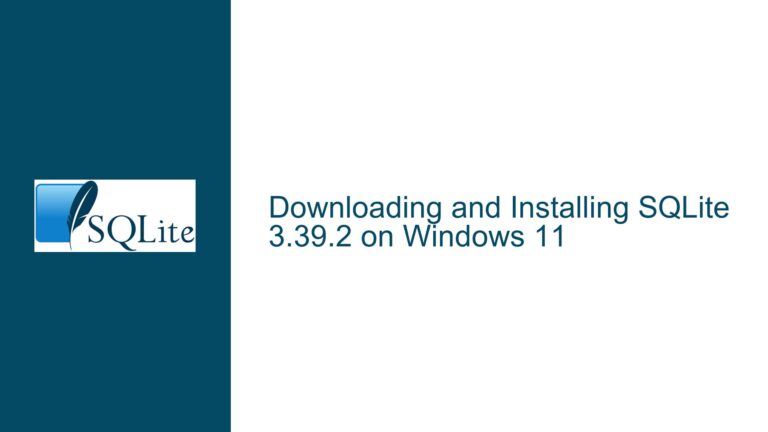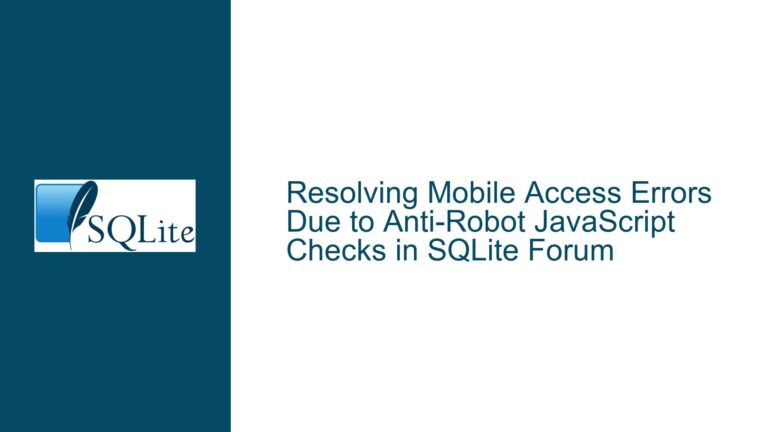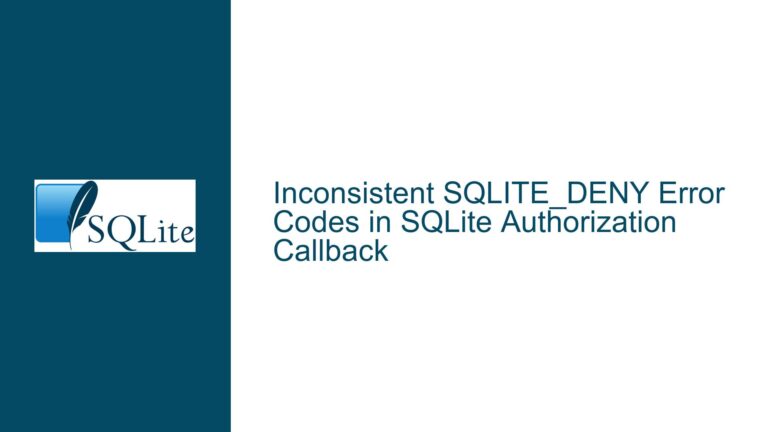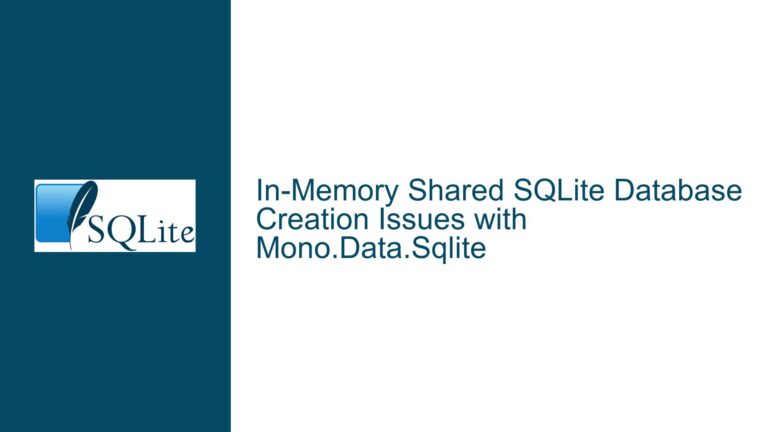SQLite ARMv7 Android NDK20 Atomic Store Load Issue
ARMv7 Android NDK20 Atomic Operations Failure
The core issue revolves around the failure of SQLite to load on ARMv7 architecture when compiled with Android NDK20, specifically due to the inability to locate the symbol __atomic_store_4. This error manifests as a java.lang.UnsatisfiedLinkError during runtime, indicating that the dynamic linker cannot resolve the atomic operation symbols required by SQLite. The problem is isolated to ARMv7 architecture and does not affect other platforms such as x86, x64, or ARM64. The issue was first observed in SQLite version 3.32.2 and is linked to changes in the atomic operation handling within the SQLite source code.
The atomic operations in SQLite are critical for ensuring thread safety and consistency in multi-threaded environments. SQLite uses atomic operations to manage memory and ensure that concurrent access to shared resources does not lead to data corruption. The __atomic_store_4 and __atomic_load_4 functions are part of the GCC atomic built-ins, which provide low-level atomic memory operations. These functions are used to perform atomic stores and loads on 4-byte (32-bit) data types, which are essential for SQLite’s memory management and concurrency control mechanisms.
The issue is particularly problematic because it only affects ARMv7 architecture when compiled with Android NDK20. This suggests that the problem is related to the specific implementation of atomic operations in the NDK20 toolchain for ARMv7. The NDK20 toolchain may not fully support the atomic operations required by SQLite, or it may require additional flags or libraries to enable these operations. The fact that the issue does not occur on other platforms or with earlier versions of SQLite indicates that the problem is specific to the combination of ARMv7, Android NDK20, and SQLite 3.32.2 or later.
Incomplete Atomic Operation Support in NDK20 Toolchain
The root cause of the issue lies in the incomplete support for atomic operations in the Android NDK20 toolchain for ARMv7 architecture. The NDK20 toolchain includes headers for atomic operations but may not include the necessary implementation or may require additional flags to enable these operations. This results in the dynamic linker being unable to resolve the __atomic_store_4 symbol during runtime, leading to the java.lang.UnsatisfiedLinkError.
The issue is further compounded by the conditional compilation directives in the SQLite source code. SQLite uses preprocessor directives to determine whether to use GCC atomic built-ins or fallback to simpler, non-atomic operations. The relevant code snippet from SQLite 3.31.1 is as follows:
#if GCC_VERSION>=5004000
# define AtomicLoad(PTR) __atomic_load_n((PTR),__ATOMIC_RELAXED)
# define AtomicStore(PTR,VAL) __atomic_store_n((PTR),(VAL),__ATOMIC_RELAXED)
#else
# define AtomicLoad(PTR) (*(PTR))
# define AtomicStore(PTR,VAL) (*(PTR) = (VAL))
#endif
In SQLite 3.32.2, the conditional compilation was modified to include additional checks for Clang extensions, which may not be fully supported by the NDK20 toolchain for ARMv7. The modified code is as follows:
#if GCC_VERSION>=4007000 || __has_extension(c_atomic)
# define AtomicLoad(PTR) __atomic_load_n((PTR),__ATOMIC_RELAXED)
# define AtomicStore(PTR,VAL) __atomic_store_n((PTR),(VAL),__ATOMIC_RELAXED)
#else
# define AtomicLoad(PTR) (*(PTR))
# define AtomicStore(PTR,VAL) (*(PTR) = (VAL))
#endif
The issue arises because the NDK20 toolchain for ARMv7 may not fully support the __atomic_store_n and __atomic_load_n functions, even though the headers are present. This leads to the dynamic linker being unable to resolve these symbols during runtime, resulting in the java.lang.UnsatisfiedLinkError.
Compiling SQLite with -latomic Flag for ARMv7 NDK20
The solution to the issue involves compiling SQLite with the -latomic flag when using the Android NDK20 toolchain for ARMv7 architecture. The -latomic flag links the application against the libatomic library, which provides the necessary implementation for atomic operations on platforms where they are not natively supported by the toolchain.
To implement this solution, follow these steps:
Modify the Build Configuration: Ensure that the
-latomicflag is added to the linker flags in your build configuration. This can be done by modifying theAndroid.mkorCMakeLists.txtfile, depending on your build system. For example, in aCMakeLists.txtfile, you would add the following line:target_link_libraries(your_target_name PRIVATE atomic)Rebuild SQLite: After modifying the build configuration, rebuild SQLite from source. This will ensure that the
libatomiclibrary is linked against your application, providing the necessary implementation for atomic operations.Verify the Build: After rebuilding, verify that the
libatomiclibrary is included in the final binary. You can use tools likenmorreadelfto inspect the binary and ensure that the__atomic_store_4and__atomic_load_4symbols are resolved.Test on ARMv7 Device: Deploy the rebuilt SQLite library to an ARMv7 device and test to ensure that the
java.lang.UnsatisfiedLinkErrorno longer occurs. This will confirm that the issue has been resolved.Address Warnings: After compiling with the
-latomicflag, you may encounter warnings related to large atomic operations. These warnings indicate that the atomic operations may incur a performance penalty on ARMv7 architecture. While these warnings do not affect the functionality of SQLite, they should be addressed if performance is a concern. You can suppress these warnings by adding the appropriate compiler flags or by modifying the SQLite source code to use smaller atomic operations where possible.
By following these steps, you can resolve the java.lang.UnsatisfiedLinkError and ensure that SQLite functions correctly on ARMv7 architecture when compiled with Android NDK20. The -latomic flag provides the necessary implementation for atomic operations, allowing SQLite to manage memory and concurrency effectively on platforms where these operations are not natively supported by the toolchain.
In conclusion, the issue of SQLite failing to load on ARMv7 architecture when compiled with Android NDK20 is due to incomplete support for atomic operations in the NDK20 toolchain. By compiling SQLite with the -latomic flag, you can link against the libatomic library and provide the necessary implementation for atomic operations, resolving the java.lang.UnsatisfiedLinkError and ensuring that SQLite functions correctly on ARMv7 devices.
